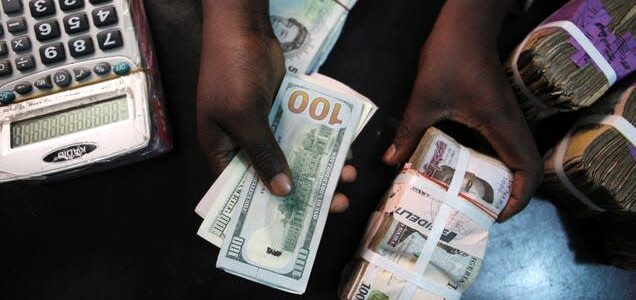
Last week, the Central Bank of Nigeria announced an unorthodox inflation-fighting measure: a redesign of its 100-, 200-, 500-, and 1,000-naira currency notes. Forcing people to exchange old notes for new ones, the bank believes, will mop up the huge volumes of currency stashed in private safes, outside the banking system.
The new notes will debut in December, but Nigerians have already been urged to start depositing their old notes before they become invalid by the end of January next year. But as Nigerians look to evade that measure, and to change naira into dollars instead, a consequent shortage of dollars is weakening the naira even further and making inflation worse.

The naira officially traded at 438 against the dollar yesterday (Nov. 1), 6% higher than the exchange rate on the same day in 2021. While that is already a high rise, the “real” rate—traded outside bank halls on the streets of Lagos and Abuja—has shot up to 830 naira to the dollar this week, from under 570 this time last year.
Why is Nigeria redesigning its naira notes?
Nigeria’s inflation hit a 17-year high of 20.8% last month, driven by a weaker naira that raised the price of imports. To tackle inflation, Nigeria’s central bank announced its currency redesign last week, adding that the move was overdue. The last such redesign was undertaken 20 years ago, whereas global best practices recommend redesigning notes every five to eight years.

But two days after the announcement, Zainab Ahmed, Nigeria’s finance minister, appeared to distance herself from the project, wondering if the central bank had fully considered the possible consequences of the move. “There will be some benefits, but there will be some challenges,” Ahmed said. In response, the bank said explained on Oct. 29 that it needs to reverse “the hoarding of significant sums of banknotes outside the vaults of commercial banks.”
Nigerian confidence in the naira is low
Nigeria’s naira suffers from the weight of an import-dependent economy. Its yearlong depreciation against the dollar has been fueled by, among other things, low dollar revenues from the sale of oil due to theft from pipelines. (An official of the state oil company said Nigeria has lost 470,000 barrels per day in theft, valued at $700 million monthly.) In turn, this has set off high demand for greenbacks amongst importers and businesses like international airlines.
With confidence in the naira already low, experts fear that the central bank’s move could simply prompt people to buy dollars rather than return naira notes. This could well be a temporary response—a way to get rid of old naira now, and swap dollars for new notes come December—but it will have the effect, in that short term, of widening the gap between the nair and the dollar.
The difference between official and parallel market currency exchange rates in Nigeria is one of the most reliable indicators for the economy’s health. This week’s rates have strengthened the perception that prices could increase dramatically as the Christmas season approaches.
Credit: Yahoo News
